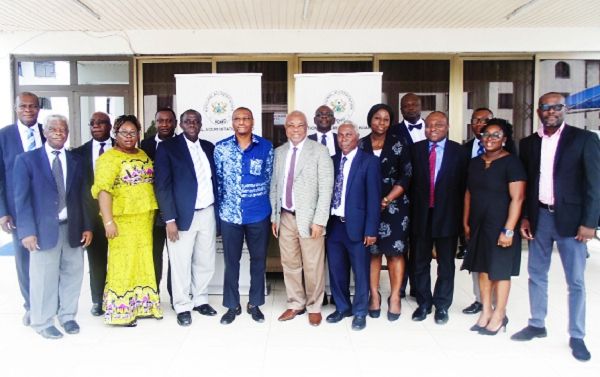
NAB, Ghana Legal Council partner to improve legal education
The National Accreditation Board (NAB) and the General Legal Council (GLC) are collaborating to fine-tune plans on how best to improve the quality of legal education in the country.
Consequently, the two institutions last Wednesday met to identify challenges facing legal education in the country and to strategise on finding lasting solutions to those challenges.
Advertisement
The GLC, which is the statutory body mandated to regulate professional legal education in Ghana, was led to the meeting by a Supreme Court Judge, Justice Jones Dotse.
Collaboration
Briefing the Daily Graphic on the meeting, the Head of Public Relations of the NAB, Mr Lawrence Kwarteng-Ashia, said the areas discussed were minimum entry requirements into law programmes, staff qualification and staff strength, as well as physical facilities, financial and other resources needed to run law programmes.
He said the two bodies had also agreed to carry out review and assessment visits to all institutions running law programmes, during which they would check for compliance to the approved standards.
Mr Kwarteng-Ashia said both institutions further agreed on the need for strict quality control measures in order to improve the teaching and learning of law programmes at the tertiary level.
He said in his remarks, Justice Dotse drew attention to the massive failure of students aspiring to be lawyers over time, for which reason he said there was the need for both institutions to collaborate to improve standards in legal education.
Accreditation processes
On how institutions are accredited to run law programmes in the country, Mr Kwarteng-Ashia said the Acting Executive Secretary of the National Accreditation Board, Dr Kingsley Nyarko, made a presentation on the mandate and workings of the NAB.
He said Dr Nyarko enumerated the various processes that institutions seeking accreditation went through and the various quality assurance measures the NAB put in place to assure quality.
Mr Kwarteng-Ashia said the Acting executive secretary added that post-accreditation exercises such as academic audit, monitoring and investigative visits were but a few of the measures the board normally undertook to ensure that institutions conformed to the conditions for the granting of accreditation.
Joint monitoring
According to Mr Kwarteng-Ashia, the Chairman of the National Accreditation Board, Professor Kofi Awusabo-Asare, for his part, emphasised that it was imperative for both institutions to carry out joint monitoring of the activities of the 15 tertiary educational institutions offering law programmes to ensure that minimum standards were maintained.



